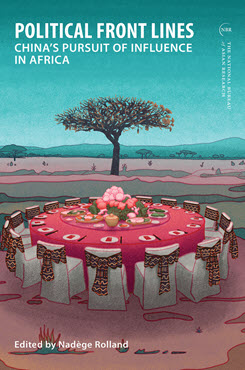Essay from NBR Special Report no. 100
China’s Growing Police and Law-Enforcement Cooperation in Africa
This essay examines Sino-African cooperation on police, public security, and law enforcement as a growing area of Chinese political influence in Africa.
EXECUTIVE SUMMARY
MAIN ARGUMENT
Most media reports about Sino-African police, public security, and law-enforcement cooperation focus on sensational stories like the public uproar that forced Zambia’s police to decommission eight Chinese nationals it had recruited in December 2017. This led to rumors that China was opening police stations in Zambia, which were not true. Such stories fit into a wider pattern of commentary that lacks empirical evidence and undermines the quality of policy debates. Another issue is that most scholarly work on China’s overseas security focuses on the Peoples Liberation Army (PLA) while largely ignoring China’s police and law-enforcement activities, which occur with much greater frequency. The empirical evidence suggests that China’s external police and law-enforcement work occurs within the larger framework of its evolving security strategy as well as its overseas influence operations. They have grown sequentially with laws and policies permitting the overseas deployment of the Chinese armed forces. As far as actual tactics go, Sino-African activities in these areas form part of a “blended security” approach. Evidently, China is much more comfortable working with former national liberation movements, but it also cultivates countries that have traditionally been closer to the West or are politically neutral. In all these efforts, China focuses heavily on fostering a common language of security by promoting the uptake of shared norms and practices. China takes advantage of the fact that the structure and values of its policing systems share many characteristics with African police, law-enforcement, and intelligence organizations. These differ fundamentally from Western police models in many areas. As China’s strategic engagement in Africa continues to increase, so too will its security activities, in which police and law enforcement can be expected to play a prominent, albeit less publicly visible, role.
POLICY IMPLICATIONS
- As China expands its security reach, more Chinese firms will respond positively to state incentives to relocate to Africa.
- China’s desired position as a partner of choice will be strengthened as its influence in African security sectors becomes more impactful. This will likely intensify “strategic competition,” particularly with the U.S., which is concerned about ceding its position as a preferred partner for Africa.
- China has a long history of legal cooperation in Africa, particularly on immigration, extradition, customs, investments, and trade disputes, and its influence in African legal sectors will increase alongside its law-enforcement engagement.
Paul Nantulya is a Research Associate at the Africa Center for Strategic Studies in Washington, D.C.



 Into Africa: China's Emerging Strategy
Into Africa: China's Emerging Strategy
